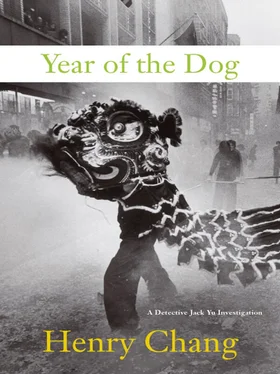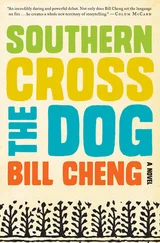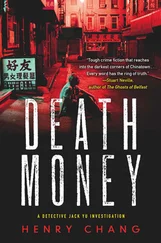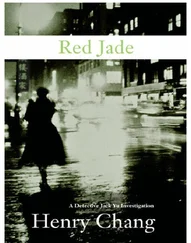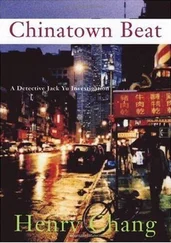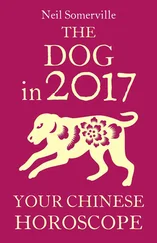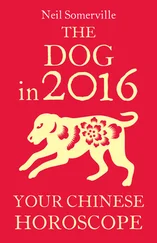Henry Chang - Year of the Dog
Здесь есть возможность читать онлайн «Henry Chang - Year of the Dog» весь текст электронной книги совершенно бесплатно (целиком полную версию без сокращений). В некоторых случаях можно слушать аудио, скачать через торрент в формате fb2 и присутствует краткое содержание. Жанр: Полицейский детектив, на английском языке. Описание произведения, (предисловие) а так же отзывы посетителей доступны на портале библиотеки ЛибКат.
- Название:Year of the Dog
- Автор:
- Жанр:
- Год:неизвестен
- ISBN:нет данных
- Рейтинг книги:3 / 5. Голосов: 1
-
Избранное:Добавить в избранное
- Отзывы:
-
Ваша оценка:
- 60
- 1
- 2
- 3
- 4
- 5
Year of the Dog: краткое содержание, описание и аннотация
Предлагаем к чтению аннотацию, описание, краткое содержание или предисловие (зависит от того, что написал сам автор книги «Year of the Dog»). Если вы не нашли необходимую информацию о книге — напишите в комментариях, мы постараемся отыскать её.
Year of the Dog — читать онлайн бесплатно полную книгу (весь текст) целиком
Ниже представлен текст книги, разбитый по страницам. Система сохранения места последней прочитанной страницы, позволяет с удобством читать онлайн бесплатно книгу «Year of the Dog», без необходимости каждый раз заново искать на чём Вы остановились. Поставьте закладку, и сможете в любой момент перейти на страницу, на которой закончили чтение.
Интервал:
Закладка:
As he approached, Sai Go could see there were two barbers on duty and no customers in the shop. One cutter was a vampy-looking Chinese girl with reddish hair, who showed a lot of skin and a tattoo of a cat on her shoulder. The other was Sai Go’s regular, a woman he knew as Bo, which meant precious. She’d been trimming his hair once a week for almost two years now.
Ms. Chu Bo Jan.
Bo was not one of the full-time stylists, the pro hair designers. Instead, she rented one of the barber chairs three to four days a week for a sixty-forty split between her and the salon owner. The owner, KeeKee, was an occasional bettor with Sai Go, and she had explained Bo’s situation when he inquired, privately, why an older woman, still handsome, had come to be a part-time haircutter.
Precious
Bo was indebted to the snakeheads, one of many thousands who were paying off a thirty-thousand-dollar deal with Chinese human traffickers, for passage to America. The deal involved bogus passports, fraudulent paperwork, and sometimes the promise of jobs. The illegals placed relatives in China as human collateral against breaking the contract.
Bo Jan was twenty-eight, already considered an old lady, when she’d married a factory worker ten years older than herself. This was during the times of the One Child Policy. Bo had wanted a child, and her husband Kwok grudgingly agreed that a child would be okay if it were a boy. The option of an abortion was already in the back of his mind.
It was a girl.
The marriage quickly became strained. Kwok wanted to give up the baby girl to an orphanage, as many Chinese had done. He hoped they’d have another chance at a coveted boy child.
Bo could not bear the thought.
The orphanages were flooded with baby girls. Americans, who’d declined to adopt black American babies, were flocking to China to adopt yellow babies as fast as they became available. China was selling its unwanted excess population at ten thousand dollars an adoption. This new global baby trade was sanitized, and legal. The Asian women sex-slaves who arrived packed in the holds of cargo ships had no such protection.
Rather than allowing the clan bloodline to end, Kwok abandoned his wife and child before the baby girl was a year old. Bo took her daughter back to her family village near the Pearl River. There, a series of unsuccessful relationships with local village men caused her to lose hope of a future for her in China, where she would be doomed to wind up a spinster, with a mother and a young daughter to care for. She began to hope for a new start in America. After the girl’s third birthday Bo left, alone, smuggled by snakeheads to New York City by way of Canada.
Now, after two years of slaving in Chinatown, she was still struggling to pay off her passage, the specter of prostitution ever present.
At first the snakeheads tried to convince her to become a whore, to work for an escort service, saying it was a much faster way to repay the debt, adding that she was not such a young woman anymore.
She had politely declined their offers and never bowed to their intimidation. Bo explained to these heartless men with no souls that she was a devout Buddhist, and prostitution was a grave sin. The snakeheads ridiculed her, called her crazy, chi seen, but by slogging through a succession of small jobs, she managed to pay her monthly installment to them without fail. She worked in a Chinatown bakery during the day, supplementing her salary with piecework, cheun gee, at home, where she strung beads into necklaces, or assembled gift baskets. The payments to the snakeheads continued, as did the funds she wired to her mother and daughter in Toishan.
After a year, the bakery job became a supermarket cashier post, which became a gift-shop clerkship, the jobs declining in desirability, requiring longer hours for less pay. So, in rapid succession, she snipped threads off piecework in a sweatshop, pushed a steamy dim sum cart in a restaurant, gutted tilapia in a fish market. On Canal Street, she hawked knock-off designer handbags. In between, she washed hair and swept up the shorn locks that piled up beneath the rotating chairs in the barber shops that lined Doyers Street. She taught herself how to cut men’s hair, and learned to include a free ten-minute neck and shoulder massage.
She waited until Sai Go was seated comfortably in the chair before she draped the plastic sheet over him.
He observed his haggard reflection in the mirror, noticed when she glanced at him. She held her small smile.
“I didn’t see you last Saturday, you weren’t here,” she said matter-of-factly.
“Of course not.” He smiled quietly. “How could you see me if I wasn’t here?”
“I thought you found a new cutter,” she teased. “At one of the designer shops, hah?”
Sai Go grinned. She was happy to see this as her comb and electric clipper danced, spraying bits of gray and white hair off his head, small clumps catching on the plastic sheet around him.
“One of those young girls made up like Hong Kong movie stars?” Bo continued, “A siu jeer girl to cut you a new style, hah? Give you a great massage, make you feel like young man again, hah?”
Sai Go chuckled, told her again and again that it was just some family business that had come up. He remembered she had given him the gold-plated Buddhist card, the talisman, many haircuts ago. He’d explained to her then that in his line of work he dealt with good people and bad people alike, explaining why he carried a box cutter in his back pocket.
Bo had detected sadness in him then, and still now, in this older man who she guessed was about twenty-five years her senior. She felt sorry for him, and tried to cheer him up with clever sayings, giving him five extra minutes of shoulder massage. The Buddhist talisman had been one of several that she carried to ward off the sex-slave snakeheads. She’d told him it would protect him in his travels.
Sai Go’s haircut hadn’t required much imagination. Years of ministrations by Chin Ho’s barber shop on Doyers Street had shaped his hair into a military-style crewcut, the sides trimmed very tight to the skull, the top about an inch long and angled back. Bo rubbed gel into the top so the sheen would disguise the gray there. He looked younger than a man in his fifties, she thought, although this day he looked tired, a bit distant, his mind drifting elsewhere.
When he looked in the mirror, Sai Go saw a beat-up, baggy-eyed fifty-nine-year-old mask of wrinkles, worry lines etched into his brow. Fifty-nine-the numbers five and nine, in Chinese sounded like not enough. True , he thought, Not enough luck, not enough time. .”
“ It’s the massage,” he heard Bo say, still teasing. “Must be I give a better massage, hah?”
Sai Go smirked, closing his eyes as the roar of the blow-dry gun filled his ears.
Bo released the lever and the chair dropped so that she had a higher angle to work from.
It was the massage, he thought, the only time he’d ever felt tension leaving his body. He liked the way Bo dug her elbows into the tops of his shoulders. He shut his eyes as she pressed down harder into the deep part of the muscle, then dragged her elbows along his shoulder blades. Her fingers worked the joints, pressing nerve points that ran along the spine.
Bo had strong fingers and hands, and knew just how much force Sai Go could tolerate.
“Everything’s stiff,” she said innocently. “ Very hard. What have you been doing? See? Miss a week and your back’s all screwed up.”
“You’re right,” he heard himself say. “I’ll try not to miss any more visits.”
She said, “You’re working too hard, that’s what it is. You need to drink hot soup. Wintermelon, foo jook, mushrooms.” She gave him a pat on the back. “It’s the wintertime. You know how to make soup, don’t you?”
Читать дальшеИнтервал:
Закладка:
Похожие книги на «Year of the Dog»
Представляем Вашему вниманию похожие книги на «Year of the Dog» списком для выбора. Мы отобрали схожую по названию и смыслу литературу в надежде предоставить читателям больше вариантов отыскать новые, интересные, ещё непрочитанные произведения.
Обсуждение, отзывы о книге «Year of the Dog» и просто собственные мнения читателей. Оставьте ваши комментарии, напишите, что Вы думаете о произведении, его смысле или главных героях. Укажите что конкретно понравилось, а что нет, и почему Вы так считаете.
